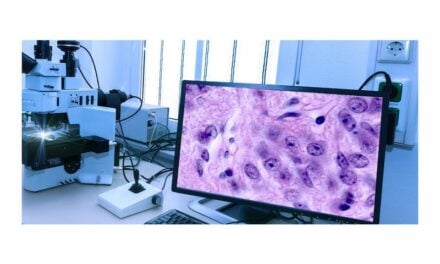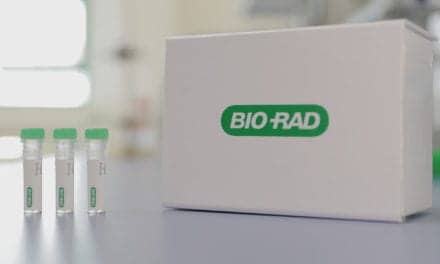Veracyte Inc, San Francisco, Calif, has received a draft Medicare local coverage determination (LCD) for the Envisia genomic classifier through four Medicare administrative contractors that participate in the Palmetto GBA-administered MolDx program (CGS, Noridian Health Solutions, Palmetto GBA, and WPS Health Solutions).
The Envisia classifier, which is built on next-generation sequencing and machine learning technology, is the first test to achieve this significant Medicare coverage milestone for use in diagnosing idiopathic pulmonary fibrosis (IPF). Upon anticipated finalization, Envisia will become Veracyte’s third genomic test to gain Medicare coverage since the company’s founding in 2008.
Veracyte estimates that each year up to 200,000 patients in the United States and Europe are evaluated for suspected interstitial lung diseases (ILD), including IPF, which is among the most common, deadly, and difficult to diagnose of these lung-scarring diseases. Veracyte further estimates that half of the patients evaluated for ILD in the United States are covered by Medicare.
“We applaud the MolDx program for taking this important step to make the Envisia classifier widely available to Medicare patients,” says Bonnie Anderson, chairman and CEO of Veracyte. “The evidence supporting use of the Envisia classifier met MolDx’s high bar for coverage and strongly positions us to expand commercialization of the test in 2019.”
The draft policy is open to a 45-day comment period, and Veracyte anticipates that the final policy will go into effect in early 2019. Veracyte’s tests for improved diagnosis of thyroid cancer (Afirma) and lung cancer (Percepta) received Medicare coverage in 2012 and 2016, respectively.
“Timely, accurate diagnosis of IPF is essential so that patients can receive optimal treatment, including new therapies that can slow progression of this deadly disease,” says Fernando J. Martinez, MD, chief of the division of pulmonary and critical care medicine at Weill Cornell Medicine and scientific advisor for Veracyte. “Alas, IPF remains difficult to diagnose, with a challenge in distinguishing it from other interstitial lung diseases that can lead to diagnostic delay and, potentially, inappropriate therapy.”
The Envisia genomic classifier helps differentiate IPF from other ILDs without the need for surgery. The test complements high-resolution computed tomography (HRCT) to enable clinicians to make a more confident diagnosis. Envisia evaluates patient samples obtained through transbronchial biopsy, a nonsurgical procedure that is commonly used in lung evaluation. The 190-gene test detects a genomic pattern of usual interstitial pneumonia (UIP), a hallmark of IPF, with high accuracy (88% specificity and 70% sensitivity).
In May of 2018, Veracyte launched an early access program to begin making the Envisia genomic classifier available to patients through select institutions around the country. The company estimates that the market opportunity for the Envisia classifier in the United States and Europe is approximately $525 million.
To learn more, visit Veracyte or view the LCD documents for CGS, Noridian, and Palmetto.







